GULNORA RAVSHAN
Narrative written by Ann de Forest
Photos by Dave Tavani
Nobody really likes to hear about truth, or about facts. Especially the government.
Gulnora Ravshan speaks passionately about her former life as a journalist in Tajikistan. The 50-year-old woman, raised in the former Soviet Union, worked for 25 years for Radio Liberty before her commitment to the truth forced her and her family to flee their country. Before that, her determination to seek out the facts sent her to war zones, prisons, and refugee camps. She interviewed the poor, oppressed, and dispossessed, in order to tell the world stories her own government worked to suppress. She also started a bi-lingual magazine, with word games, puzzles, bright pictures, and folk tales to entertain and educate children displaced by her country’s civil wars.
Back then, writing about refugees, she never suspected that she would become one herself. “Now we are refugees,” Gulnora says. “I learned what that meant.”
It has been five years since Gulnora has worked as a journalist. In 2011, fearing for her children’s lives, she left her home in Dushanbe, Tajikistan’s capital, in the middle of the night and went into hiding. That journey eventually led her to the United States, where she lives now in an apartment in Philadelphia’s Rhawnhurst neighborhood with her four children.
At her front door, Gulnora greets visitors shyly, apologizing for her halting English. But as soon as she starts talking about her career as a journalist, her shyness fades. “Journalism for me is oxygen. It is so hard for me to live without it…” she begins, and for the next four hours, her story pours out. Gulnora speaks six languages and leaps back and forth from Uzbek to Turkish to Russian, as her 20-year-old daughter Rushana, head tilted, forehead scrunched in concentration, works hard to keep up with the translation.
Gulnora loved her job, she says, because she worked directly with the people of her country. “You breathe the same air,” she said. “You are at the pulse.” She taps two fingers on the cuff of her crocheted sleeve for emphasis.
In her bureau in Dushanbe, Gulnora had a reputation for being fearless. She wanted to be a witness and to be at the center when something was happening. If there was a bombing, “she took her machine to record the voice of the bomb,” says her 20-year-old daughter Rushana.
In 2010 fighting escalated between the government and rebel factions near the Afghan border. Insurgents had ambushed a military convoy, and the Tajik government mounted a siege to flush the rebels out of their mountain hideaways. Gulnora was the only reporter in her office brave enough – crazy enough, some said – to go to the rugged, war-torn region Her youngest daughter was nine-months old and still nursing. Rushana was 11. “There’s no guarantee that you will come back alive,” her bosses told her. “This is my job,” she responded.
“It was her third war,” Rushana remembers. She would call her mother every night. “I could hear the guns.” Rushana would hang up the phone crying. Her neighbors consoled her. “That’s okay,” they said. “Your mom’s not going to die.”
Disguised as a village woman, Gulnora slipped undetected past 40 heavily guarded checkpoints that stood between her and the village where government soldiers and rebels were fighting. “40 times I lied, and 40 times it worked,” she recalls. At the 41st, she was stopped and asked what she was carrying in her bag. The guards found her camera and tape recorder. “What are you doing?” they challenged her. She told them the truth. “I want to see what’s going on there, I just want to see what’s real.” They let her pass, with the same warning her bosses had given, “I can’t guarantee that you’ll come back alive.”
In the village government forces used as their base, soldiers told her that the opposition would take her hostage if they knew she was a journalist. She insisted on an escort into the mountains. She interviewed one of the rebel leaders, streaming their conversation live back to Radio Liberty in Praque, shells exploding in the background. “She wanted to prove she was strong,” says Rushana, “She couldn’t just go back.”
The blend of determination and subterfuge that made her a valued journalist would eventually get her into trouble with Tajik authorities. Those skills also were key to her family’s survival.
After the war, Gulnora turned her attention to human rights, particularly abuses against ethnic Uzbeks living or working in Tajikistan. She wrote an exposé of soldiers who had raped an Uzbek woman at the border in front of one of her four children. The authorities denied the woman’s allegations, harassed the woman, and tried to cover up the incident. Gulnora reported on the cover-up. “She wrote a lot of articles that were so strong. The government didn’t like that,” says Rushana.
When it came time for Gulnora to renew her press credentials, the government told her “we don’t want you to work as a journalist any more.” Radio Liberty tried to intervene on her behalf. To the news agency, the government claimed Gulnora’s application was stalled due to “technical problems.” The back-and-forth lasted months. In the meantime, Gulnora had no work and no means to support her family. When Tajik’s foreign minister attended a Radio Liberty meeting in the U.S., then- Secretary of State Hillary Clinton brought up Gulnora’s case.
“This woman,” he claimed, “broke the relationship between Uzbekistan and Tajikistan.”
When the minister returned to Tajikistan, he gathered the country’s journalists. Gulnora was banned, but her colleagues snuck her inside. She sat directly in front of the minister, in a room with 300 of her colleagues, and confronted him. “Did you really say that I broke the relationship between Uzbekistan and Tajikistant?” she said. “I must be very powerful if I could do that with a single article.”
“After that the police started to come to our house,” says Rushana. They would show up at one a.m., two a.m. Anonymous phone callers whispered warnings: “Something’s going to happen to you. Maybe a car will come, and it will look like an accident.”
Despite her lack of credentials, Gulnora continued documenting the people’s grievances with the government. In January 2012, a group of women gathered outside the president’s office, protesting their lack of electricity and heat. A woman Gulnora was interviewing pointed to a red car with shaded black windows across the square.
“They’re following you,” she said.
“Yes,” Gulnora replied. “I’m doing my job. They’re doing their job. I’m interviewing you. They’re following me.”
One day, the car that was tailing her pulled up beside her and stopped. She was dragged inside. She started screaming. They pushed her down into the snow and drove away. Then, the secret police took her to meet the National Security Committee. She was taken to a basement. “You don’t have the power that we have,” they told her, and handed her a paper to sign. They wanted her to write that America was ordering her to write her articles criticizing the government. They wanted her to state that Radio Liberty disseminated American propaganda.
She knew she couldn’t refuse. If she said no, she would be tortured, “put in an electrical chair,” as Rushana translates, “where, even if you didn’t kill Lenin or Stalin, you would say that you did.” She told them she needed to go home, but she would sign the document there. The men let her go, with a warning. They knew where her children went to school, they told her. Maybe one day, they suggested, your children won’t come home.
Gulnora knew then she had to leave the country. Her children’s lives came first. “After that,” says Rushana. “My mom says, ‘I am not a journalist. I’m a mom.”
Like many refugees, Gulnora remembers the exact date and time she left her home for the last time. “On November 28, 2012 at 2:00 am we left our house with 2 bags.” Gulnora, Rushana, and the three younger children left under cover of darkness to her father’s village. There was no electricity, no phones, and no Internet. Gulnora’s Radio Liberty colleagues and her international community of connections through Facebook and Twitter were all sure she was dead.
To get out of Tajikistan required all her journalistic wiles. Gulnora paid a bribe to a police secretary to reclaim her confiscated passport, then another at airport security so she could fly out of the country. In Russia, she contacted her estranged husband, father of her four children, who, like many Tajiks, had migrated to Russia in search of work. Angry at first, he made her an offer. She could bring the children to the work camp where he lived with 60 other men, and serve as their cook and housekeeper. She shudders at the memory. “It’s impossible. I had three daughters. There are 60 men. They’re going to attack me and they’re going to attack my girls.”
Gulnora was stuck. She was in a strange country, with no means of support. And Moscow was so cold, “it was like something kicking you in the face,” Rushana describes.
Ever resourceful, Gulnora contacted an organization called Reporters Without Borders. Amazed that she was alive, they urged her to get out of Russia as quickly as possible. They were sure the Russians would “sell her, a wanted woman,” back to Tajikistan. The agency made arrangements for them to move, and said they could pick any country. Gulnora picked Turkey. The language was similar to Uzbek, she reasoned, the religion the same, the culture not too different. And, it was warm. Rushana remembers arriving at the Ankara airport, and looking out the window to see people wearing t-shirts. They were still bundled in their winter clothes, and Rushana started peeling off the layers that now felt so suffocating.
Though the children thrived in Turkish schools and rapidly picked up the new language, Gulnora still could not find work. The family had little to live on. For a time, the children were subsisting on sugar, Gulnora says, until Radio Liberty gave her a new contract. But then she started noticing that she was being followed. She sought guidance from the United Nations Human Rights Council (UNHRC) and was advised to apply for refugee status. After a protracted process of paperwork and interviews, the family waited to see what country – Canada, Australia, or the U.S. – would accept them. When they learned America would be their new home, they then had to choose which state they would live in. It wasn’t until they arrived in the Frankfurt airport, where they were to connect with their U.S. flight, that they learned their destination was Philadelphia. They knew nothing of American geography. “We were worrying. Where were we going?”
There they were met by a Russian-speaking caseworker, herself an immigrant, from the Soviet Union. Gulnora can never forget her shock at the first words to come out of her caseworker’s mouth. She didn’t ask how they were feeling or handling the transition. She eyed Gulnora’s covered head and said, “Why did you come with your scarf to America?”
In the I.D. photo on Gulnora’s expired press credential, her head is uncovered. She wears a dark blouse with an open collar. As a journalist, she wore secular, Western clothes. When she was forced to leave her country she reclaimed the outward signs of her religion. Rushana listens to her mother’s impassioned explanation, then translates: “She is wearing the scarf first, because she is following the rules of God. Second, because she is in mourning, because she is not in her own country.”
Gulnora speaks then, in clear English. “I have no home.”
Losing her home unsettled a much older, deeper grief. “She cannot visit her mother or father’s graves,” says Rushana. Her mother was killed in 1993, after the civil war in Tajikistan was officially over. Gulnora was 25, working as a journalist in Iran. Her mother was 53. “She really loved her mother. That’s why she is wearing the scarf.”
Gulnora couldn’t believe the caseworker’s ignorance. Even before they arrived Gulnora knew that the U.S. Constitution protected her right to wear a head scarf. “America’s Bill of Rights, Amendment One,” Rushana recites. “You are free to choose your own religion.” Despite those protections, Gulnora was recently dismissed from her job at a Russian-speaking day care because her employers told her that her headscarf was scaring the parents. For a while, Gulnora was unemployed and living on food stamps, though now she has found work that is more supportive of Muslims.
Rushana and her two sisters and brother have adapted to their new life. Rushana, a senior at Northeast High School, wants to be a journalist like her mother, although she too has faced some discouragement. A well-meaning counselor in the welfare office advises her to consider a career as a nurse or doctor instead, given her solid math and science grades.
Rushana is undaunted. Her English has improved impressively since her family’s arrival just a year and a half ago. She writes now for Northeast High School’s newspaper, encouraged by the faculty advisor. Like her mother, she is headstrong and determined. “I want to write just about the facts and about human rights. I want to show that to write facts is not dangerous.”
Earlier, Gulnora brought out the children’s magazine she started in Tajikistan more than 20 years ago. The magazine’s name means Snowdrop.
“It’s a little poetic thing,” she says. “A snowdrop is a flower that grows under the snow.” She finds a photo on her phone of delicate white blossoms curled under a snowbank, held up by thin green stems. “It gives hope that all those cold days are going to go away. When you see the flower, you know that spring is near.”

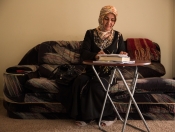
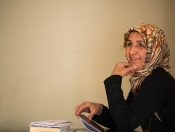
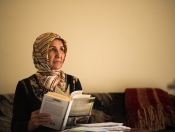
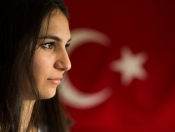
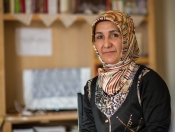
 Emi and Afaq Mahmoud
Emi and Afaq Mahmoud 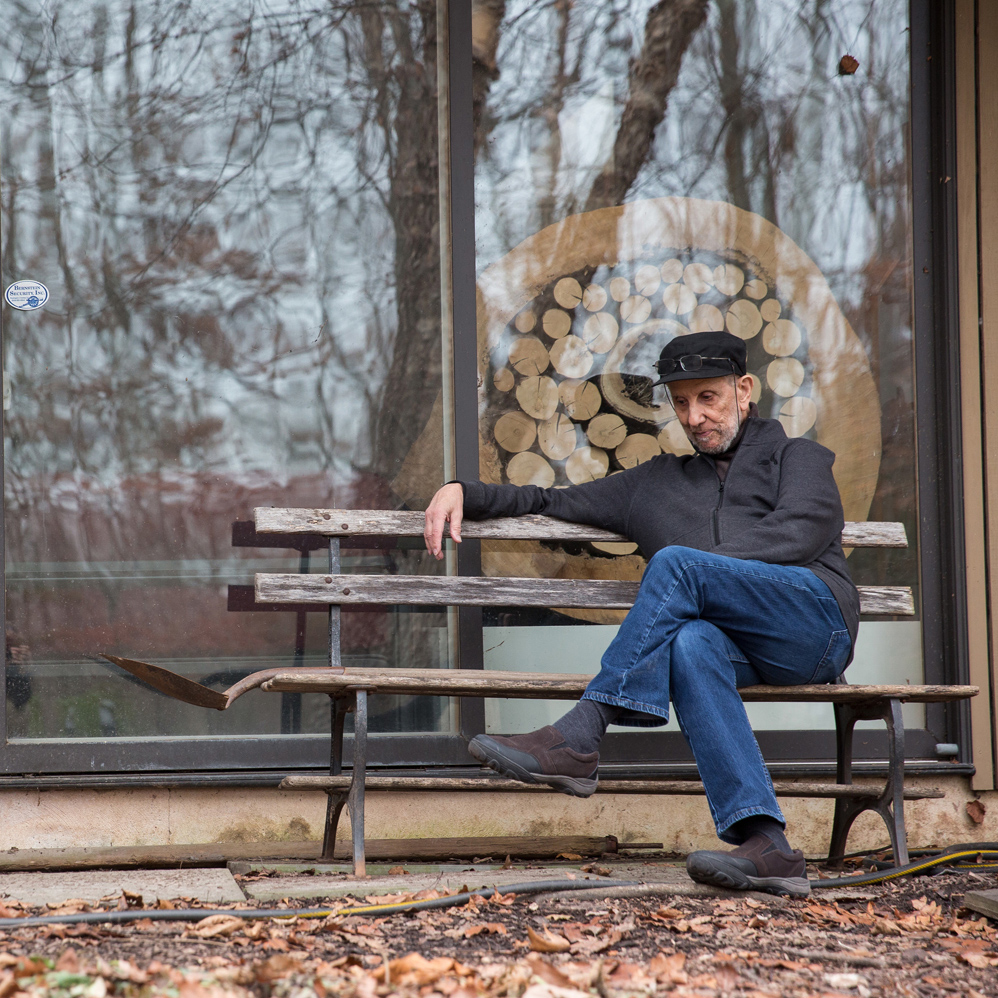 Rajie Cook
Rajie Cook 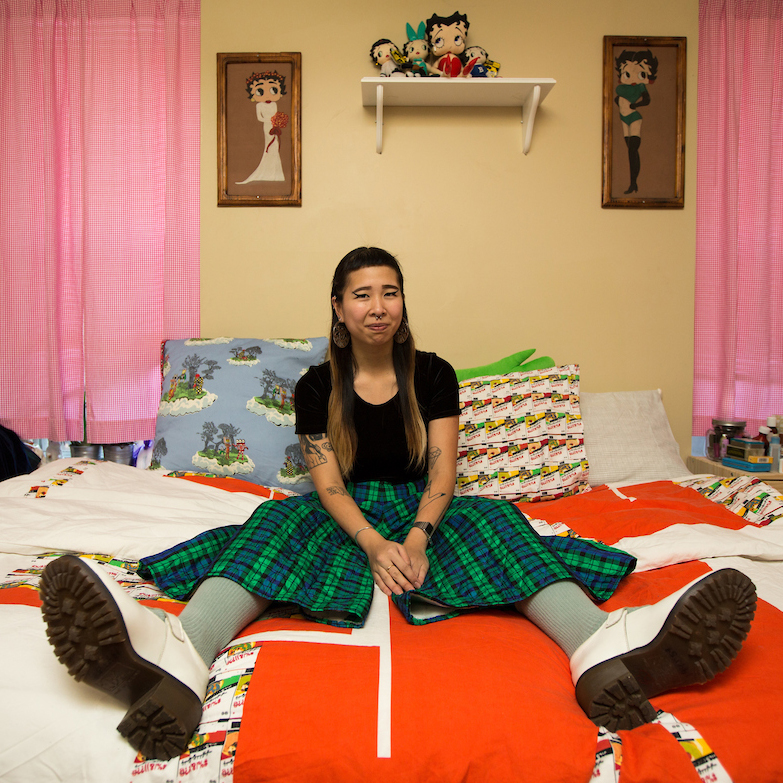 Cocoa Mahoney
Cocoa Mahoney 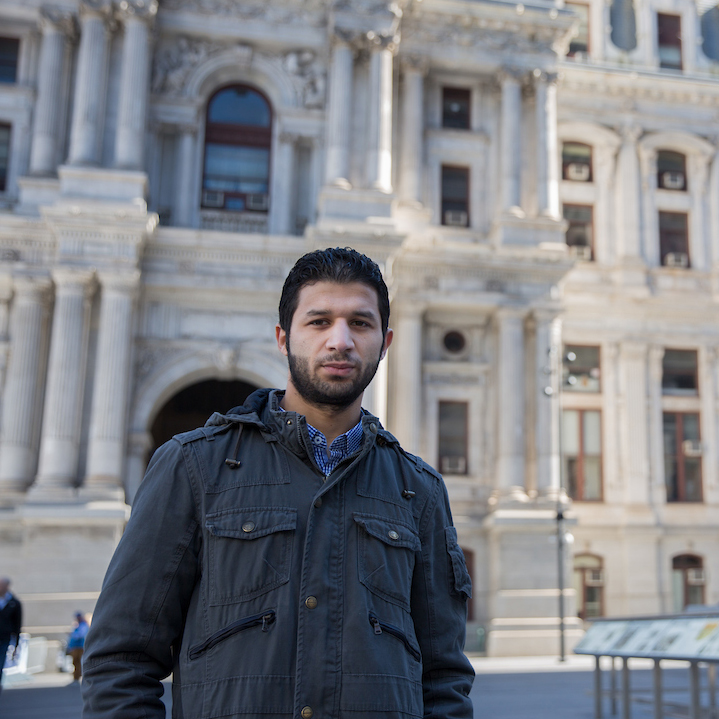 Yasser Allaham
Yasser Allaham  “Floating Outsider”
“Floating Outsider” 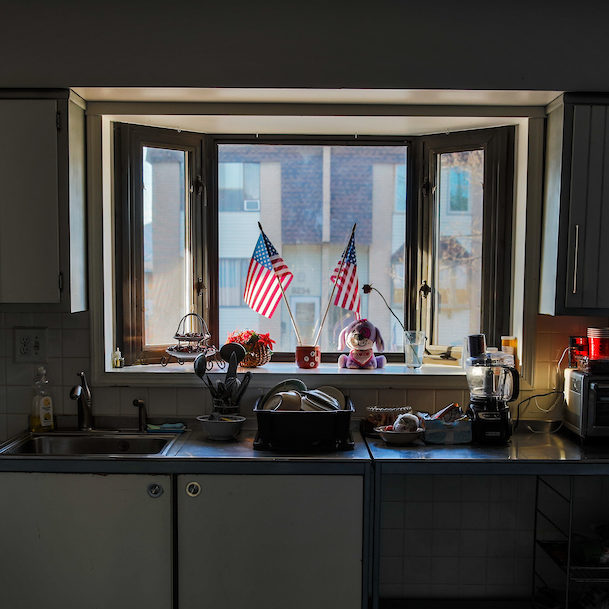 “Ahmad” & “Zainab”
“Ahmad” & “Zainab” 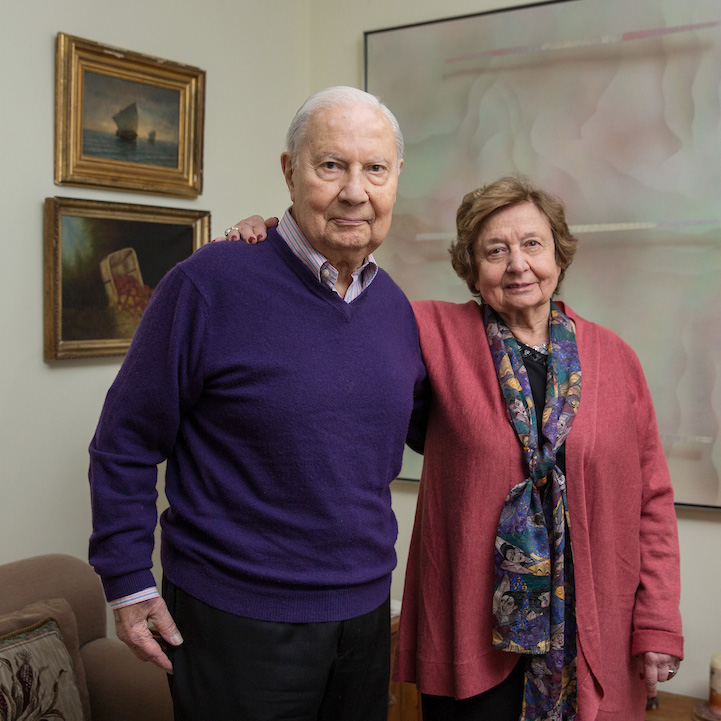 Jack and Gloris Dunnous
Jack and Gloris Dunnous  Maria Turcios
Maria Turcios 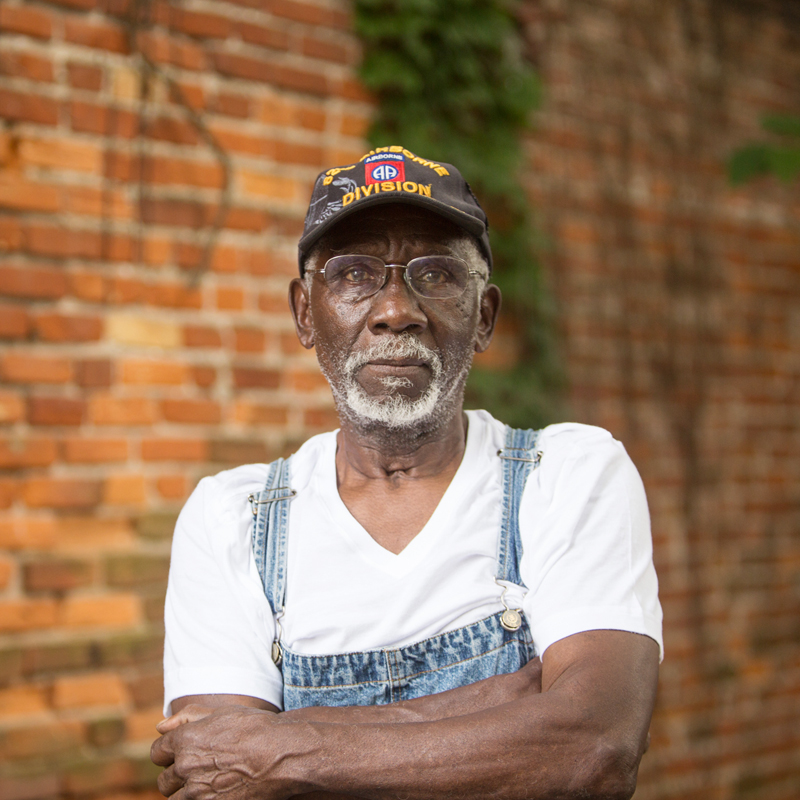 Lafayette El
Lafayette El 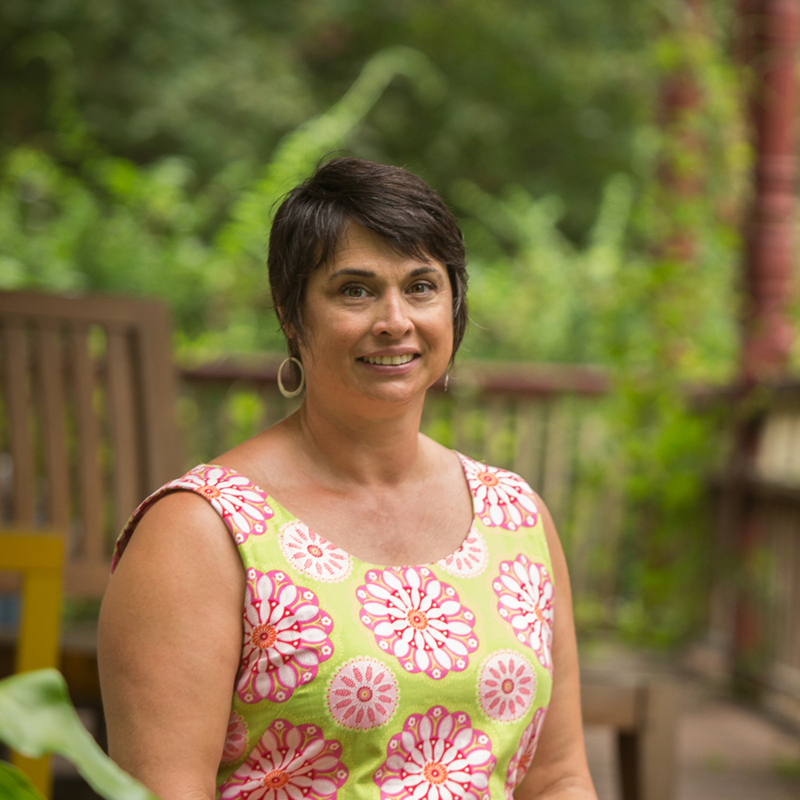 Tara O’Brien
Tara O’Brien  Sophia Simpson
Sophia Simpson